A trend in recent years, the microbiota is said to hide the answer to many diseases such as diabetes, Crohn's disease and even autism.
First of all, we need to define what a microbiota is, it is the set of microorganisms (bacteria, viruses, fungi ...) living in a specific environment which is called microbiome. The best known and fashionable example is the intestinal microbiome, composed of millions of germs living in symbiosis with the organism.
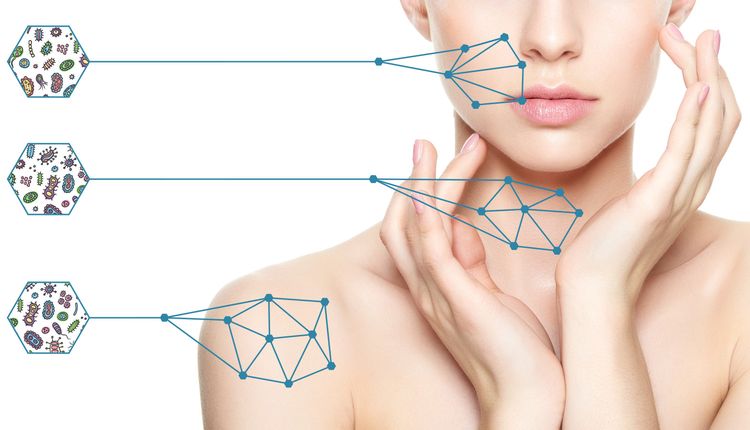
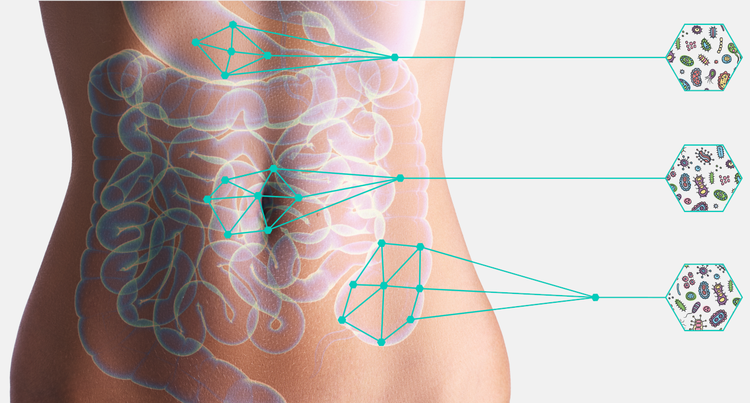
The study of the microbiota or the analysis of the microbiome is done by a sequencing method called metagenomics. It enables an inventory to be made of the species present in a sample.
Metagenomics consists of sequencing the genetic material of all the organisms present in the sample. This method of analysis has only been possible thanks to the development of high-throughput sequencing technologies.
Two metagenomic analysis strategies exist, which will be detailed below.
From different types of samples, such as faeces samples or skin or mucous membrane swabs, we carry out the extraction of the genetic material.
Amplification of the regions of interest of the 16S rDNA is carried out using specific primers. Depending on the type of sample and your needs, the amplified regions may vary. On faecal samples, microbiome analysis is carried out by sequencing the V3 to V4 regions of the 16S rDNA. For skin swabs, we will perform the analysis focusing on the V1 to V3 regions.
The amplification of the fragments is then carried out using a capillary electrophoresis apparatus. As the size of the amplified fragments is known, it is easy to check whether the amplification has been carried out correctly for all samples.
The libraries are then grouped together so that each sample is equally represented in the mixture. The sequencing then takes place on our Illumina MiSeq device. The sequencing cartridge is adapted according to the number of samples and the desired sequencing depth.
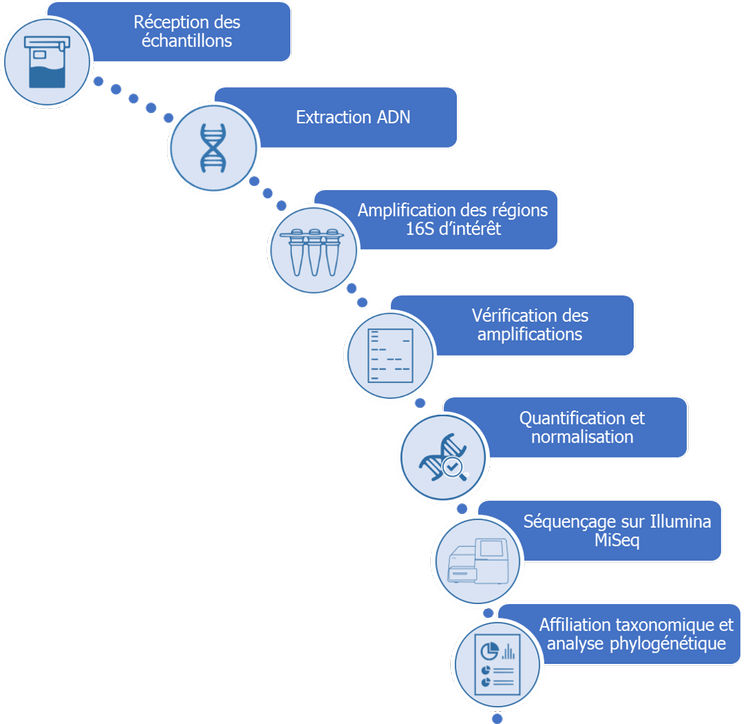
Within the framework of our microbiome analysis by 16S rDNA sequencing we provide you with the following information.
- An analysis report containing the various information on the consumables used and the different stages carried out.
- Demultiplexed sequencing data in Fastq format.
We can also provide you, after bioinformatics analysis of your sequencing data, with the taxonomic assignment and phylogenetic analysis of the different samples.
More advanced bioinformatics analyses can be carried out according to your needs and on request.
Unlike microbiome analysis by sequencing regions of the 16S rDNA, the so-called shotgun metagenomics sequencing methodology does not focus on any part of the extracted DNA.
In this method, the extracted DNAs are fragmented by a chemical, mechanical or enzymatic process, in order to obtain fragments of a defined size (ranging from 75 to 300 base pairs).
Following fragmentation, adapters containing sequencing primers and indexes are added to the fragments.
The fragments are then sequenced and the sequencing data are compared with the reference genomes to establish a list of organisms present in the different samples.
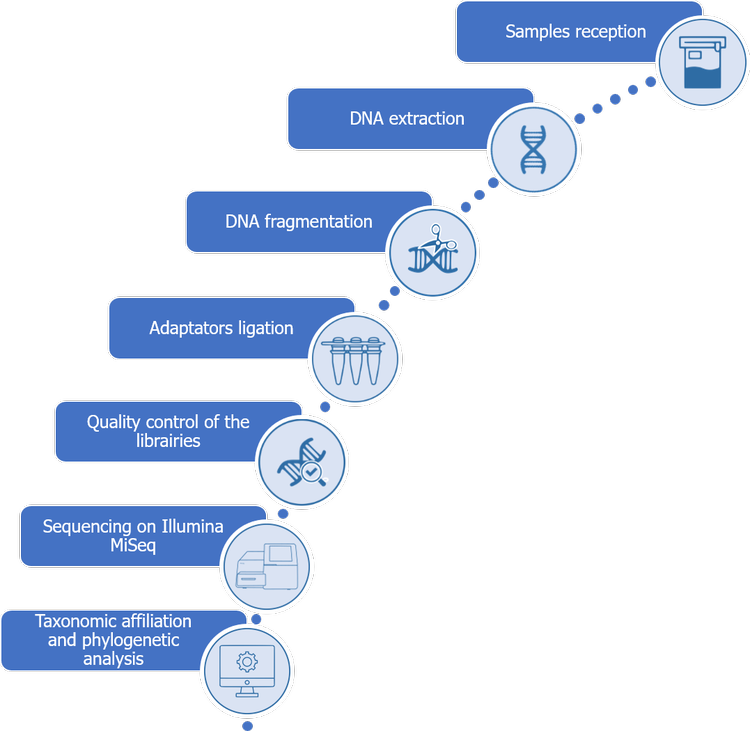
The results of a metagenomic shotgun analysis are as follows:
- The annotated nucleotide sequences of the genomes
- The depth of reading reflects the degree of reliability of each base
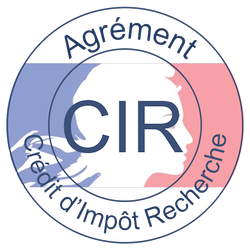
Our microbiome analysis services can be personalised and the expenses incurred in your studies are eligible for Research Tax Credit, under the conditions defined by the State services.
Below, you will find a brochure presenting the service of microbiome analysis by sequencing the V1 to V9 regions of the 16S rDNA.
We are at your disposal to answer all your questions about our services of microbiome analysis by amplicon sequencing or shotgun method.



